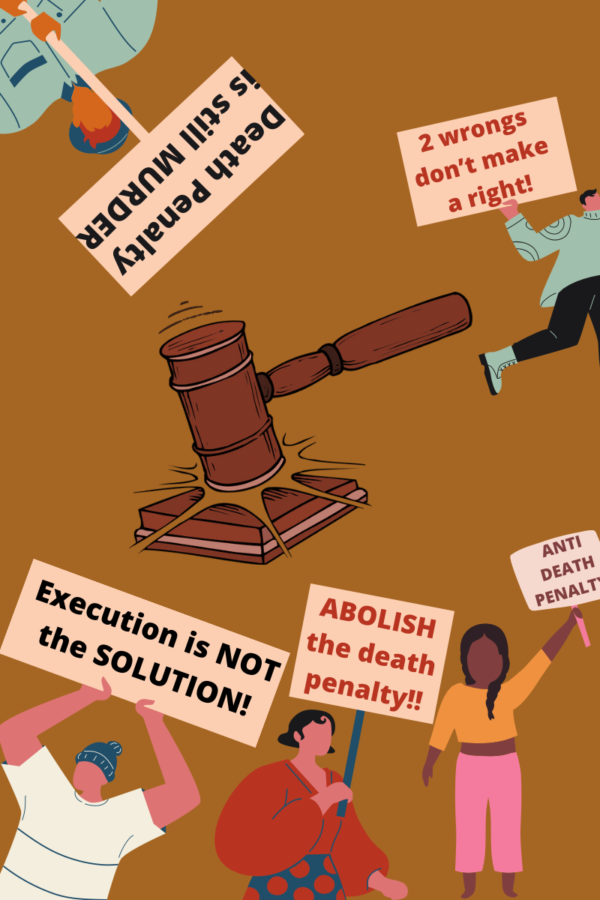OP-ED: The Death Penalty Needs To Go
April 13, 2021
Virginia has recently become the very first southern state to abolish the death penalty since the Supreme Court reinstated it back in 1973. This sheds some light on the work done by death penalty abolitionists, knowing that some additional states may follow in Virginia’s footsteps. Head of the Death Penalty Information Center, Robert Dunham, stated that “there is a sense of inevitability” that the punishment will disappear. The death penalty is a cruel and inhumane punishment that allows for the state to assert ownership and dominance over its citizens. Opposers to abolitionists might argue that this punishment is a great deterrent of crime. However, this is less true than one might imagine.
Two arguments as to why the death penalty is still useful in modern society is that it prevents repeating offenses and dissuades others from crime. Firstly, criminals who are subjected to the death penalty cannot repeat a crime. However, the same could be said for those who are removed from civilization and serve a life sentence in prison. There is no need for the death penalty in terms of prevention in the United States. Therefore, one of the main reasons for keeping this punishment is debunked. Moreover, there is a stigma that the death penalty impedes others from committing crimes.
The fact is that there is no significant data that can correlate the death penalty with being an effective deterrent. There has been both American and Canadian studies done on how the death penalty leads to less criminal activity. However, these studies could not back up this claim. In 2004, the average murder rate was 5.71 per 100,000 people of the population in states that used the death penalty. The average murder rate in states that abolished the murder rate was 4.02 per 100,000 of the population. Despite how this data is somewhat outdated, the statistics haven’t changed much over the years. Therefore, this data is still relevant and shows that there is no correlation between the death penalty and less homicide rates; in fact, it is quite the opposite. Therefore, the idea that the death penalty is a deterrent for crime is false.
In a different way of thinking, some may believe that the death penalty is useful because criminals deserve to be punished for what they’ve done. However, there are some flaws in this thinking. There are instances where the alleged criminal could be falsely convicted of their crime. Consequently, if they were sentenced to the death penalty for a crime they never committed, there would be no possibility to free the innocent. If said convict was given a life sentence in prison, when the case was looked over and the convict was found to be innocent, they would be able to walk free.
Another reason to abolish the death penalty is racial disparities. Not only is it much more likely for black people to be sentenced to the death penalty than white people, but convicted murderers of any race are drastically more likely to be sentenced to death if their victims are white. Black people represent 13 percent of the population, yet make up 42 percent of death row and 35 percent of those executed. It is quite obvious that racial disparities are present in the judicial system. These facts reflect the internalized and systemic racism that still has a flourishing presence in our justice system, which is unacceptable.
Some may argue that since worse crimes cannot be given an equal punishment to lesser ones, those criminals should receive the next best thing: the death penalty. However, how do we know that that is the worst punishment? If these criminals served a life sentence in prison, it could be even more devasting than the death penalty. What do you think these atrocious criminals would rather prefer: a swift execution or a life spent locked in a cell, never to see the outside world again? We should reconsider previous notions before quickly coming to the conclusion that the death penalty is still necessary because it serves as a justifiable punishment.




